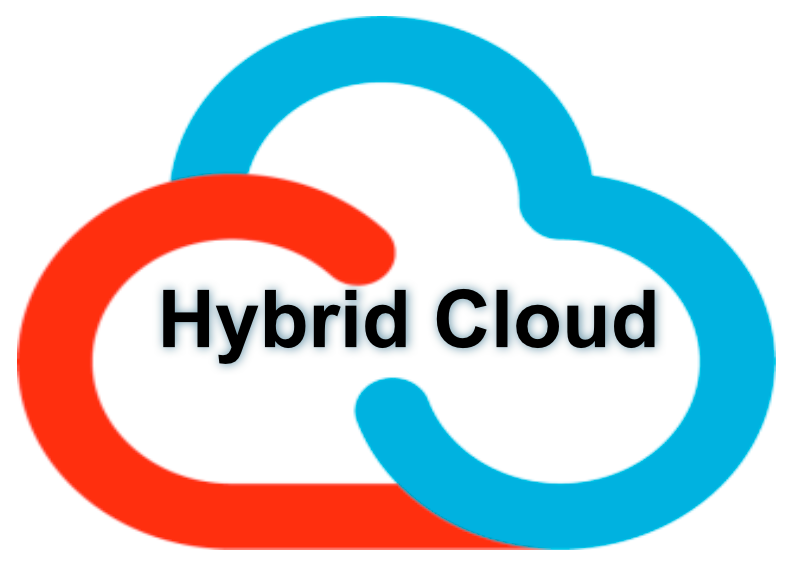Disaster Recovery is one of the most vital pre-requisites of data storage. It is a pity that some organizations fail to take necessary steps to make sure that proper precautions for Disaster Recovery are taken.
It is observed that companies that are tight on resources tend to make compromises with server clusters, backups, snapshots, and overall redundancy in network connections. In addition to this, traditional Disaster Recovery solutions can be susceptible to errors in spite of being highly resource intensive and prohibitively expensive.
There is however a much better option of carefully designed hybrid cloud solutions that can be leveraged for flawless Disaster Recovery without significant operational investment and massive capital expenditure.
Disaster Recovery expenses can be reduced considerably to achieve recovery time and recovery pint goals by accessing public cloud to manage storage, backup, and compute. Entire gamut of secondary infrastructure can be controlled in terms of maintenance of sensitive data with cloud solutions.

Disaster Recovery and hybrid cloud
It is possible to exploit benefits of hybrid cloud for managing disaster recovery. Significant improvement of disaster recovery can be achieved by harnessing hybrid clouds. Its architecture itself is responsible for securing and improving agility and flexibility of disaster recovery.
In terms of operating architecture, hybrid cloud is an ideal resource for disaster recovery. It has immense potential to become the most sought after Disaster Recovery route when it comes to adoption of a more effective and efficient method to secure mission critical applications.
On-site replicated data centers- Although on-premise data centers are able to support many enterprises, it is observed that these are highly resource intensive when it comes to consumption of power and cooling utilities, and need for manpower. These methods need to be backed by efficient networking infrastructure for proper Disaster Recovery support. It has been observed that traditional Disaster Recovery methods such as colocation and on-premise replicated data centers are rapidly being replaced by hybrid cloud.
Colocation- Leasing a third party site for implementation of Disaster Recovery has been a common approach adopted by many organizations. In addition to its easy availability, colocation can be employed without any hassles. It also helps reduce capital investment. The cost of colocation can be a concern because the facility needs to be positioned in a remote geographical location to work effectively as a solution for Disaster Recovery.
Hybrid cloud- This is rapidly emerging as the third approach for Disaster Recovery and is termed as DRaaS. It is the most appropriate approach to Disaster Recovery because it possesses all attributes of an ideal Disaster Recovery solution. Hybrid Cloud can offer much needed geographic diversity in addition to advantages of managed services and fixed pricing. It is not surprising that the public cloud is increasingly being accessed as an offsite resource for storage of secondary copy of data.
DRaaS is backed of virtualization technology and hence offers a plethora of advantages including simple infrastructure, automation, and reduced costs.
Hybrid cloud or DRaaS helps optimize resources without compromising with the advantages that are available with traditional Disaster Recovery approaches.
Organizations are able to make sure that the most recent data is also being secured due to live data replication in real time with help of DRaaS solutions. Hybrid cloud also offers ease of remote access for operating cloud data.
Understanding relevance of hybrid cloud as an ideal Disaster Recovery solution
It is hard fact of life that many organizations spend billions of dollars for maintenance and operation of racks that store copies of data. Organizations can even go the extent of operating entire data centers for managing duplicate data resulting in the huge investment.
The amount of investment required to maintain copies of data represents the highest IT related expenses.
Approach to Disaster Recovery by adopting traditional methods can be justified by arguing that the investment is not being wasted because the money is actually being spent to make sure that data as well as applications are seamlessly available for users. However the fact remains that this Disaster Recovery approach accounts for the maximum investment with minimum ROI.
In this context, hybrid cloud based Disaster Recovery offers a great respite and is the most cost effective approach to Disaster Recovery. Hybrid cloud has capability to act as a seamless extension of physical data center.
It is the most feasible option for small and medium enterprises that cannot afford huge capital investment of legacy Disaster Recoverymethods. Hybrid cloud solutions empower these organizations with enterprise grade Disaster Recovery capabilities that can be afforded by large companies. In terms of cost optimization, hybrid cloud helps companies save costs that can be channelized for development of their IT infrastructure.
Unfortunately hybrid cloud is still perceived as a lose combination of public and private cloud by many IT execs. Unless we perceive the hybrid cloud as an integrated extension of data center backed by state of the art functionalities, including active directory, authentication, and LDAP.
Conclusion
Adoption of hybrid cloud as an effective Disaster Recovery solution depends upon the proper understanding of the amazing capability of hybrid cloud as a reliable and highly cost effective approach for robust protection of mission critical applications.






 Live Chat
Live Chat